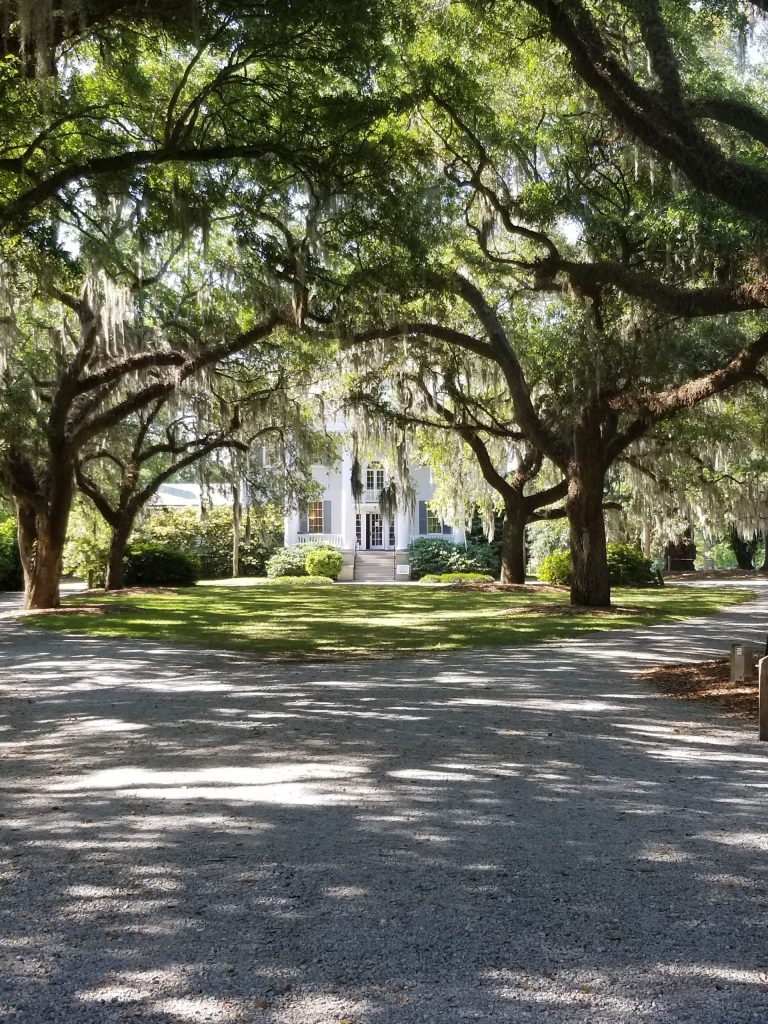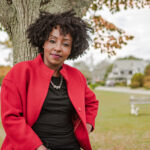My Juneteeth was May 10th

One of the things that I never share with people who aren’t family (and I don’t share this with all of them) is that it bothers me that my family has always been on the struggle bus. Growing up, it seemed that every expense, planned and unplanned, was difficult to manage. On the other hand, I often wondered why my family had never taken part in any civil rights activities. Moreover, I couldn’t understand why we were (and still are) overrun with health problems. And for crying out loud, I couldn’t understand why everybody had a low wage job or no job at all.
The older I got, the more unmentionable these things became. I couldn’t find a way to talk about them that didn’t come across as judgmental and uppity. By the same token, I hated feeling like my family was a walking stereotype and the embodiment of all of the negative theories I learned about in my college psychology classes. Although I couldn’t quite put my finger on how we got to be who we are, I knew it wasn’t because my family members were bad people who were lazy and shiftless. My great grandfather worked one job 40 years only to retire, get another job and work 20 more! I never knew him to take a sick or vacation day. My aunts and uncles did everything from picking cotton to house cleaning to warehouse and factory work. Nevertheless, I was stuck somewhere between confusion and shame about the people from whom I come and who had been fiercely loyal to me: why hadn’t we accomplished more?
Until May 10th, which was just a few weeks ago, I was carrying the silent burden of having felt stuck and confused my entire life. On that day, I visited the McLeod Plantation in Charleston, SC, while on vacation. Despite growing up in the south, I’d never seen, let alone visited, a plantation. While I never thought of them as pleasant spaces, seeing three of them (I saw two more plantations during my vacation) reframed how I saw my family, myself, and my country.
The day before I visited the first plantation, I drove from Charleston through the countryside to get to Congaree National Park. As I drove, it struck me how rural the area was. When I happened upon houses, I knew, instantly, which homes belonged to black people. I knew because they had all of the monikers of poor southern people. I know those people because they are part of my family and extended community. When I drove by the old black woman, who looked to be in her 80s, sitting right in front of her yellow cinderblock house that was too close to the road, I knew what the inside of her home looked like. I also knew it was hot as hell in there, and I felt like she should’ve been spending her silver years in more comfortable conditions. I wondered if she had no air conditioner, if she simply couldn’t afford to run it, or if the cold air was too much for her athritic joints. I even wondered how many unfilled prescriptions she had.
This scene repeated itself several times during my drive. As I drove by these folks and passed large homes set far back from the road that were obviously owned by white families, I thought about those Black people what I’d thought about my own family: they have nothing and will leave nothing. There is no money, no professional footsteps for someone to follow in, no access to relationships and resources that could make a difference in the lives of their children and grandchildren. Yes, they were and are salt of the earth good people who have nothing to show for their lives.
The morning after I visited Congaree, I turned right off the main road and onto the property of the McLeod Plantation. I was not ready for what I saw and learned. First, I learned that children really were subjected to hard labor and saw THEIR FINGERPRINTS WHICH WERE DISCERNIBLE IN THE BRICKS OF BUILDINGS. Second, I learned just how large a plantation (aka slave labor camp) is! I’d never thought about where plantations were located, but quickly realized that there were all located on the outskirts of town because they had to be. They were that vast. I also learned that the top level of main houses often served as lookouts from which “overseers” could literally see over the property. Then, I saw the slave cabins. They were nothing more than wooden boxes with fireplaces. They were so small that you could stick your head in and see the whole thing. I wondered how a whole family could live in one of those. Since enslaved people were forced to breed, I wondered if they were even permitted the decency of privacy for “mating”.
As I looked at the relics of our not-too-distant past, the tour guide told the group that the McLeod plantation was one of the most productive cotton plantations in the area. I couldn’t imagine the “incentive methods” plantation owners used to get that kind of productivity.
At the end of the tour, I was speaking with the tour guide and thought about my great grandparents. Because my great grandfather’s people were said to be Geechee, we suspect his people were sold through Savannah, GA, which is about a 2-hour drive from Charleston. A well of emotion that had been building in my chest overflowed as I shared how desperately poor he was as a child. I learned that his mother “gave away” his baby sister when his father died because she couldn’t work, raise kids, and nurse a baby. I was well into my 20s when I learned this story, that “given away baby” existed and was actually still living (In a twist of fate, life had brought me to the New Jersey and she lived only 45 minutes away from me in Philadelphia, PA thanks to the Great Migration!)
As the tour guide and I kept talking, I thought about my grandmother who told me that she felt guilty for being alive when she learned that she had cancer as a 17 year old girl. She felt guilty because the shoddy healthcare that she did get meant her parents and siblings had to pick more cotton and work longer hours in the fields.
In that moment, standing under a live oak dripping in Spanish Moss, I saw how all of it came together: slavery, reconstruction, jim crow, sharecropping, no education, grandma feeling guilty about being alive, and how I’d become the first in my family to attend college. Then, my heart broke about all that they didn’t get to do. That sadness linked up with my own grief about what I’ll never have the opportunity to become, and how much certainty I’ll never have about what could have been if racism and slave had not been. Then, I ugly-cried in public. As I pulled myself together, the tour guide said, “You are the hope and dream of the slave”.
Oddly, the experience steeled something in me, and I got in my car and drove to a second plantation called Magnolia. The difference between the two plantations couldn’t have been greater. The former was an attempt to depict the history of our country through the eyes of Black people. The latter was just a pretty botanical garden with a pretty tree-lined entrance with a footnote: “Oh, by the way, we have a few slave shacks in the corner that were wall-papered by apparently cold enslaved people who were trying to make insulation. Feel free to focus on the pretty trails and please note that we do weddings here!” Seriously, if the word plantation wasn’t in the name, you wouldn’t have known that you were on one.
On the final leg of my vacation, I visited one more plantation, Wormsloe. I wanted to see the burial grounds of the people who were enslaved there. I believe cemeteries tell you something about the ways in which people lived. There is something beautiful and solemn about walking with someone across the threshold between life and death and this respect extends to the way in which their remains are interred.
Like Magnolia, if Wormsloe didn’t have Plantation in the title, you’d think it was just an old park focused on the history of how the State of Georgia was founded. Nevertheless, there were three things that struck me. First, there was only one way in and one way out: through a grove of oak trees over a mile long. Second, a large section of the plantation was surrounded by a swamp in an area known to have alligators, rattlesnakes, and only God knows what else. Just think about the risk someone would have to take to escape! It’s either that water or tipping through the night in the brush along that 1.5 mile oak alley. But it was the third thing that transformed my entire outlook. I asked to see the slave cemetery and was told that I could not because it was on the part of the property that was reserved for privacy of the family who lived in the main house. THE DESCENDANTS OF THE ORIGINAL OWNING CLASS FAMILY STILL LIVED ON THE PLANTATION. You could’ve knocked me over with a feather. I could hardly believe it. Almost immediately, I thought, “I can’t wait until the next time I hear ‘What happened in the past has nothing to do with me’ “ or that someone is tired of hearing about the past, as one white man said to me while I was visiting the Angel Oak Tree.
As I thought about all of the benefits that the Wormsloe family and their descendants have enjoyed for centuries and up to this very day, I realized that I have lived my life internalizing oppression. I tolerated the demands that I mask, code-switch, and accept things that marginalized me because I didn’t know who I really was and how my country has always gone out of its way to make sure nobody knows, including white people. White people, in many ways, are in the dark just as much as I was and as Black people are; thus, they internalize superiority while people like me internalize oppression.
Now, I know why great granddaddy was so excited to pay for my books when I went to college. Now, I understand why my great grandmother insisted on riding along when I moved into my first dorm although she was wheelchair bound: she just wanted to see. Now, I understand the despair of their child, my grandmother, when she said she felt guilty for being alive and for wanting to live. Now, I understand why my uncle said that he couldn’t participate in the civil rights movement because, “I had to go to work”. Now, I understand why they used their simple pleasures as escapism and uttered things like, “I’m damned if I do and damned if I don’t”. Now, I know a little bit of the emotional burden they withstood living their whole lives driving by the houses that they knew their grandparents built. Now, I know.





